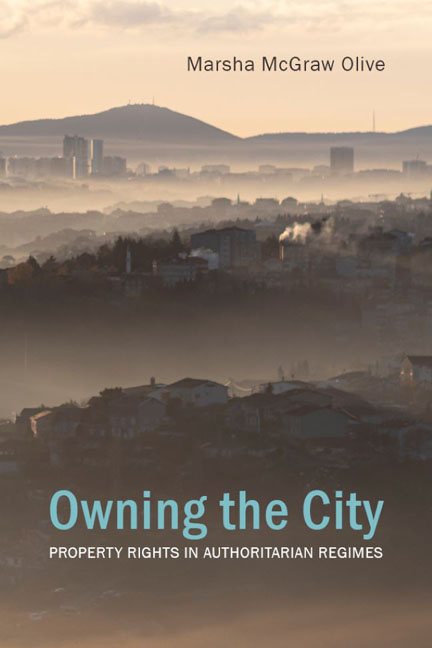Book contents
- Frontmatter
- Contents
- Acknowledgements
- List of Figures and Tables
- 1 Introduction and Argument
- 2 Globally Successful Cities
- 3 Urban Political Economy in Historical Perspective
- 4 Urban Land Governance: Liberal and Illiberal Patterns
- 5 Cautionary Tale: Moscow
- 6 Cautionary Tale: Istanbul
- 7 Conclusions and Prognosis
- Bibliography
- Index
7 - Conclusions and Prognosis
Published online by Cambridge University Press: 20 January 2024
- Frontmatter
- Contents
- Acknowledgements
- List of Figures and Tables
- 1 Introduction and Argument
- 2 Globally Successful Cities
- 3 Urban Political Economy in Historical Perspective
- 4 Urban Land Governance: Liberal and Illiberal Patterns
- 5 Cautionary Tale: Moscow
- 6 Cautionary Tale: Istanbul
- 7 Conclusions and Prognosis
- Bibliography
- Index
Summary
The competing worldviews of democratic and authoritarian states will define global politics in the twenty-first century. In December 2021 US president Joe Biden threw down the gauntlet in an international democracy summit he hosted to spur action against authoritarianism and rejuvenate democratic institutions, notably at home as well as abroad. It is an upbeat effort to reverse the dispiriting decline of democracy, which had triumphed when communism collapsed in 1989– 91. Ironically, the capital that claimed victory against an evil empire three decades earlier had to extol the continuing value of democracy. And the call for rejuvenation came in the same capital from the very president whose affirmation of victory was threatened when angry protesters stormed the US Capitol in January 2021.
How democratic and authoritarian polities differ on essential philosophical questions is not at issue. The agenda to protect human rights and reduce pernicious corruption in authoritarian regimes is salient for voters in liberal democracies. Actions to implement the agenda are also viewed positively, such as the appointment of a Coordinator for Global Anti-Corruption in the US Department of State and the closing of loopholes for money-laundering in the real estate sector. Yet the debate is silent on reasons for citizen support of authoritarian leaders.
Why does the property-owning middle class, which was a primary historical ingredient of democracy in the West, not push back against authoritarianism in Russia, Turkey and China, where private real property is prevalent? Why do real property rights produce economic but not political benefits?
This book examines these questions in Europe and Eurasia and uncovers a new variation on politics and property ownership. So long as average citizens can acquire real property rights that provide a long-term store of wealth, while governments reduce bribery and hassles in their real estate transactions, they are willing to overlook grand property corruption by elites and their limited voice in the political realm of life. But, when those hard-won rights are ambiguous or abused, or if the value of property or the urban landscape is marred by elite enrichment or environmental degradation, the social contract underpinning authoritarian legitimacy begins to fray.
The issue that policy-makers are missing in the democracy versus authoritarian debate is the political and economic power of real property rights.
- Type
- Chapter
- Information
- Owning the CityProperty Rights in Authoritarian Regimes, pp. 161 - 176Publisher: Agenda PublishingPrint publication year: 2022



